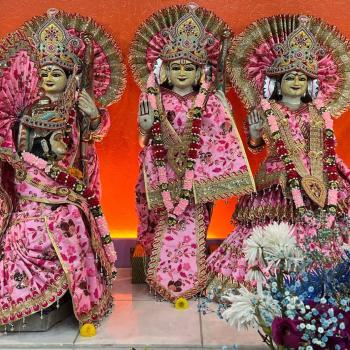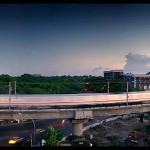Two decades ago it was Union Carbide and today it is Pepsi and Coke. Multinationals came to India and made the citizens pay for their greed. That is a good and very true story. But there is another side to the story! Indian laws were either not there to stop these MNCs from doing this or were not implemented. Why?
THAT is a question that no one is asking now.. nor did anyone ask at the time of Union Carbide! Everyone is obsessed by banning Coke and Pepsi. Are they the cause or the result? The central, and indeed the foundational question to ask is – Why didn’t we have adequate laws and if we had them.. why weren’t they implemented??
Today we can pull Coke and Pepsi from the scruff of their neck and throw them out of the country.. but will that solve the problem? Tomorrow it will be someone else! The Activists like Sandeep Pandey are refusing to look at the LONG TERM.. because the short term anti-large corporation stance is so sexy to don! If only 5 out of 10 activists could focus on the right question.. we could probably have a debate started. But then who and when will someone as simple as ASK THE RIGHT QUESTION!!??
Why is asking the right question important? If you are driving on a road with a deep valley on both sides and you keep you gaze on the valley below.. where do you think your car will swerve towards? Try it.. and you will get the answer!
To get the right results.. you need to start on the right path.
A month after seven Indian states imposed severe restrictions on the sale of colas and other aerated drinks, the Coca-Cola company has become the target of a vigorous popular campaign in Uttar Pradesh, India’s largest state.
The campaign’s focus is on Coke’s bottling plant at Mehdiganj, a small town 35 km from the holy city of Varanasi (Benares), on the Ganges. The plant stands charged with overexploiting groundwater and polluting it with toxic heavy metals such as lead, cadmium and chromium.
Led by the National Alliance of People’s Movements (NAPM), the agitation demands that the Mehdiganj plant be shut down, just as another Coke bottling facility, at Plachimada in southern Kerala state, was shut down in March 2004 for mining fresh water and spreading pollution.
The campaign got a major boost last month when the Centre for Science and Environment (CSE), an environmental policy-oriented non-governmental organization (NGO) announced the results of a study, which found that soft drinks sold in India, including those made by Coca-Cola and Pepsico, contain a cocktail of pesticides at concentrations far higher than considered permissible by national authorities and the World Heath Organization (WHO).
CSE, which has established a formidable reputation for accurate data-gathering and sharp analysis, tested numerous branded aerated drinks sampled from different parts of India. The sample included 28 Coke brands and 29 more from Pepsi.
CSE subjected these to rigorous testing, and found that they have average pesticide concentrations that are about 20 to 25 times higher than the maximum permissible accepted by the official Bureau of Indian Standards (BIS).
For instance, Coke’s flagship drink contains pesticide 26.8 times the maximum permissible level. Pepsi Cola contains 30.4 times more. These numbers shocked the public and led to outright bans on the manufacture or distribution of colas in Kerala. Six other states, including Karnataka, imposed tough restrictions on the sale of soft drinks within or in proximity of schools, colleges and government offices. There are signs that more of India’s 28 states will follow suit.
A cross-section of India’s political parties is demanding an outright ban on all soft drinks bottled by multinational corporations. Together, Coke and Pepsi nearly monopolise the soft drinks market in India and sell 355 million cases each year — though sales have stagnated since 2005.
More than the pesticides it is water extraction that is making soft drink manufacturers unpopular. NAPM says that the excessive extraction by the Mehdiganj plant has led to depletion of groundwater in an area known for abundant water availability, due to its location in the Gangetic delta.
According to R. Chandrika, an engineer who studied the water situation, “ninety percent of the wells around the area have been affected. As many as 39 percent of shallow wells and hand-pumps have either dried up or are in the process of drying up.” She said the water table around Mehdiganj has dropped by an average of 18 feet (5.5 metres); there is a severe water shortage in more than 20 villages.













